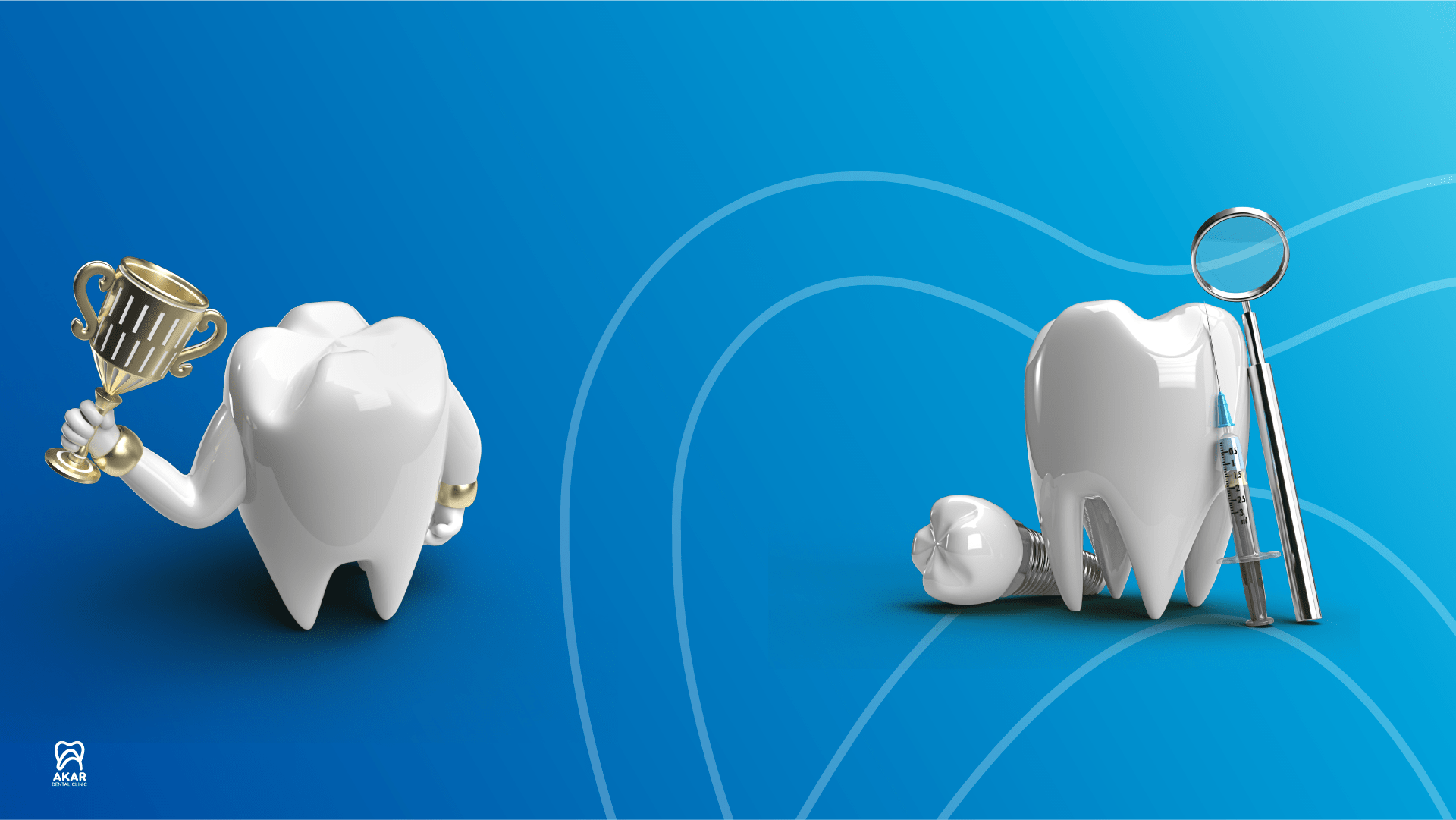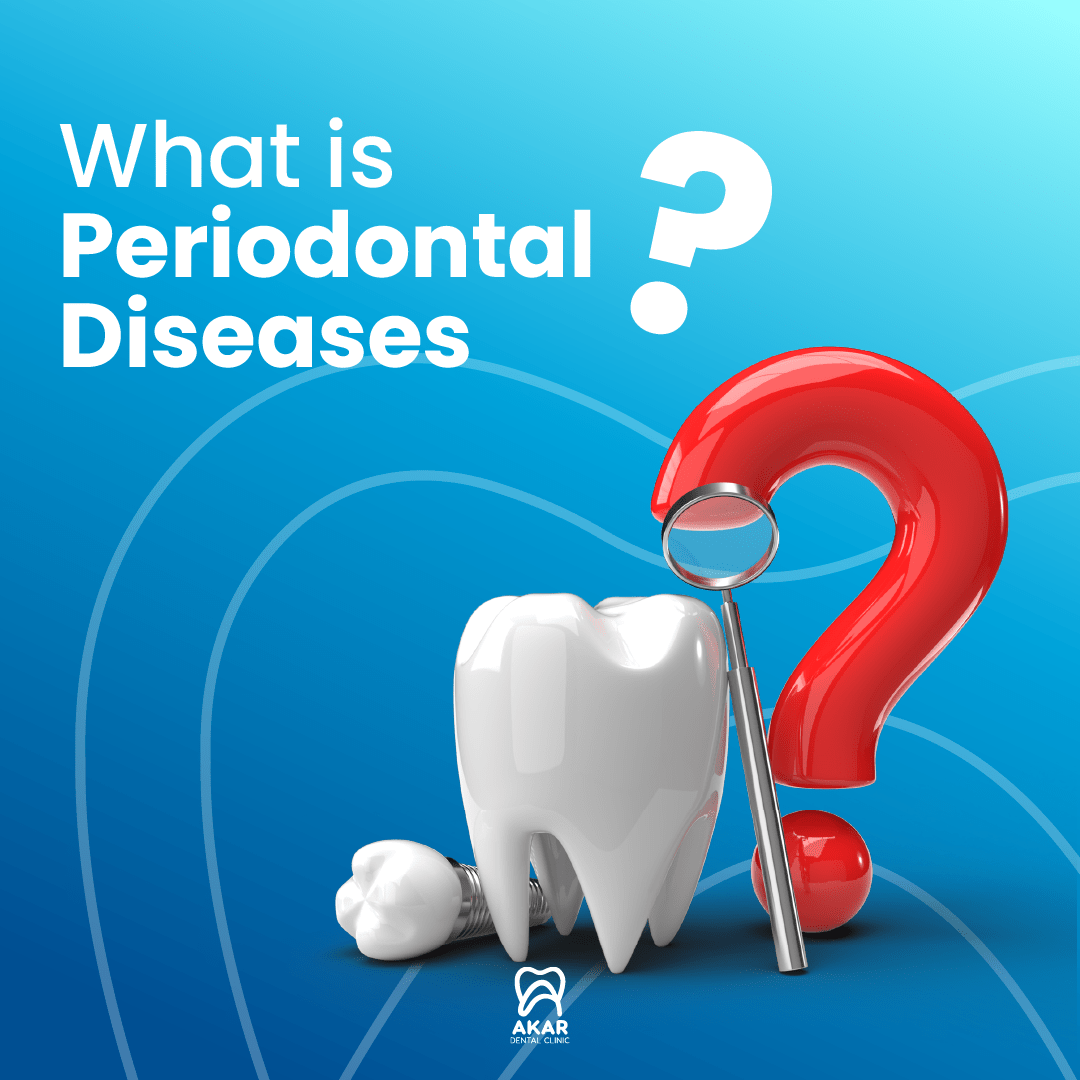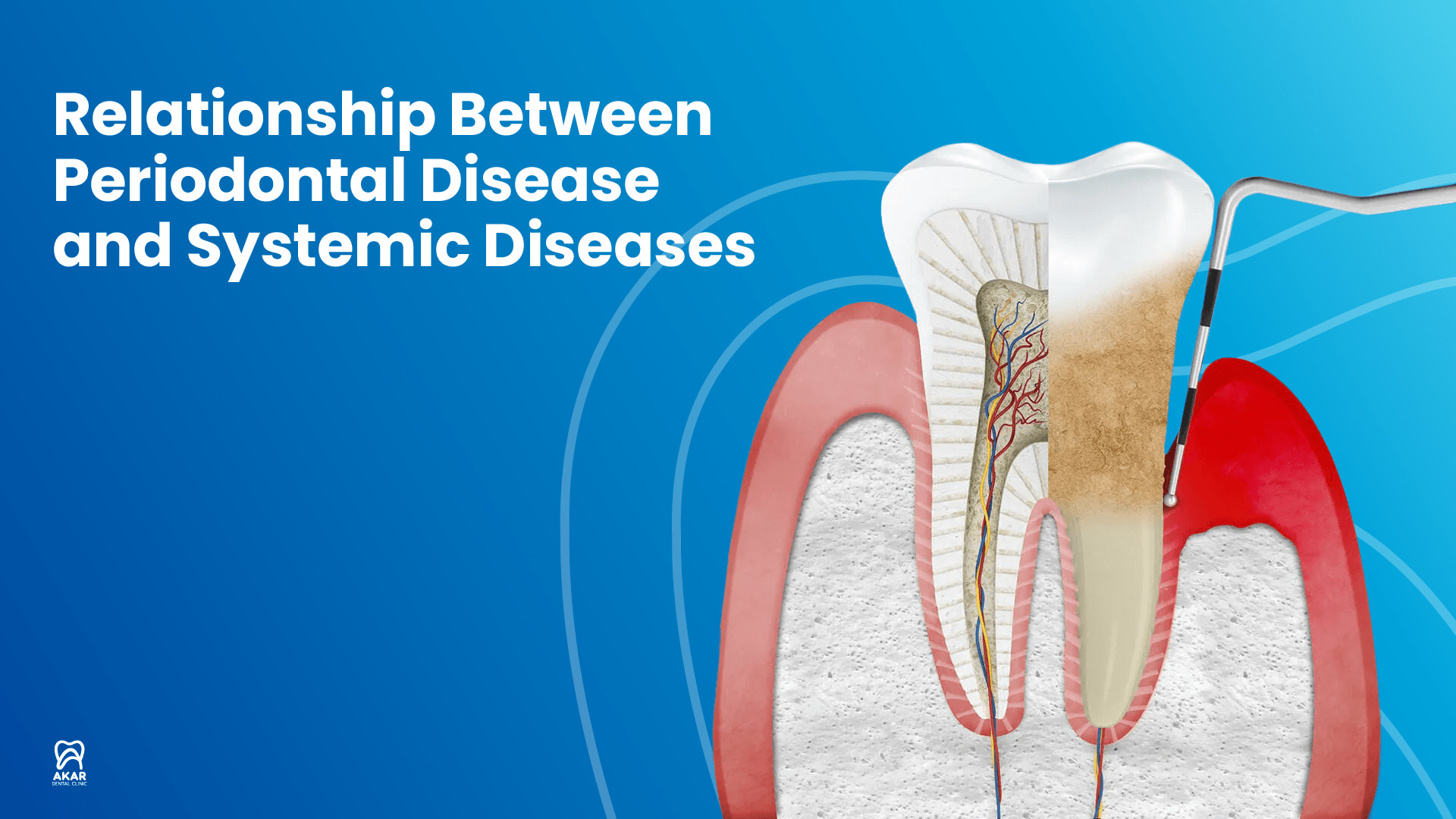

Periodontology is an essential field of health care that focuses on the tissues surrounding the teeth causing periodontal disease or gum disease. This area of science is responsible for diagnosing, treating, and preventing periodontal diseases that can cause damage to the gums, resulting in tooth loss, potential infection, and jawbone loss. On the other hand, in case gum disease is not treated, the untreated condition has been linked to several health problems, including heart disease, stroke, diabetes, and pregnancy complications because bacteria may go inside the bloodstream and cause infection in the body. The health of the tissues surrounding the teeth is critical for maintaining a healthy oral environment. Several techniques are used to treat periodontal diseases, and it is critical to identify the appropriate treatment method to avoid further complications.
At Akar Dental, we provide comprehensive gum assessments and employ various forms of treatment to address the specific needs of our patients. Our goal is to ensure that patients maintain good oral health and prevent the occurrence of periodontal diseases.
What is Periodontal Disease?
 Gingivitis and its progression cause various early periodontal diseases. The disease known as gingivitis is also called periodontitis. Periodontal gum diseases should not be ignored since 70% of tooth loss in adults is caused by the gingiva. Gingivitis manifests symptoms of bleeding from the gingiva and enlargement in volume. If it is not treated, periodontitis may be raised that has damage, likely causing jawbone structure that gives reason to teeth loss.
Gingivitis and its progression cause various early periodontal diseases. The disease known as gingivitis is also called periodontitis. Periodontal gum diseases should not be ignored since 70% of tooth loss in adults is caused by the gingiva. Gingivitis manifests symptoms of bleeding from the gingiva and enlargement in volume. If it is not treated, periodontitis may be raised that has damage, likely causing jawbone structure that gives reason to teeth loss.
Gingivitis becomes noticeable due to bleeding in the gums. If the toothbrush does not cause the bleeding, it is necessary to consult a doctor. While explaining periodontitis vs. gingivitis, periodontitis is the advanced version of gingivitis. A formation of periodontal pockets occurs between the teeth and gum tissue because of inflammation. For this reason, it becomes difficult to suppress dental inflammation by providing hygiene, and the progression of the infection is facilitated due to the periodontal pocket. Moreover, the teeth wobble when periodontitis progresses, and tooth loss may occur.
Periodontitis Symptoms
Periodontitis can cause bleeding in the gums, bad breath, retraction of the gums, ınflammation between teeth and gums, Increased spacing of teeth, dangling teeth, and teeth Loss. In addition, if there are problems in the balance between the upper and lower teeth while biting, it may be possible to talk about the presence of periodontitis. If a person has a prosthesis in his/her tooth, changes in the compatibility of this prosthesis with the oral tissue may also indicate periodontal disease stages.
How to Treat Periodontitis?
Before beginning the periodontal treatment, the teeth’s roots are cleaned. Additionally, the patient receives hygiene care. By eliminating retention areas that could lead to caries, occlusion is controlled. This phase aims to get rid of the tissue pocket. Methods for treating periodontitis include:
1- Surgical Periodontal Treatment
Tartar in the deep periodontal pockets surrounding the teeth is cleaned; periodontal pockets are eliminated; a smooth root surface is provided, and the patient’s gingiva is aimed to be more easily cleanable.
2- Subgingival Curettage
The gingiva is anesthetized with local anesthesia if the tissue does not show the expected healing following the initial periodontal treatment. The inflammatory tissues and tartar under the gingiva are removed.
3- Gingivectomy and Gingivoplasty
It is a surgical procedure performed under local anesthesia to give physiological form to the thickened gingival margins, correct the gingival morphology, and treat fibrotic growths. This process is used in our smile makeover treatment and ensures that the gums are evenly aligned.
4- Flap Operation
Gingival recessions in deep points which close your root are treated with connective tissue or free gingival graft operations. At Akar Dental, we guarantee that each option of treatment solution is defined to be most effective based on any health condition specific to the patient.
Relationship Between Periodontal Disease and Systemic Diseases
 Systemic diseases, disorders, or conditions affect periodontal inflammation through changes in the host’s immune response to periodontal infection. In addition, it may predispose to the development of periodontitis by causing metabolic changes that affect the periodontium or by other mechanisms. In the same way, it can also accelerate the development of periodontitis. As a result, many systemic factors cause periodontal attachment and alveolar bone loss.
Systemic diseases, disorders, or conditions affect periodontal inflammation through changes in the host’s immune response to periodontal infection. In addition, it may predispose to the development of periodontitis by causing metabolic changes that affect the periodontium or by other mechanisms. In the same way, it can also accelerate the development of periodontitis. As a result, many systemic factors cause periodontal attachment and alveolar bone loss.
Periodontitis can be called the most severe gum disease. Because it damages the alveolar bones, causing tooth loss.
If the gum connection is not improved, periodontitis occurs. If it is not treated, periodontitis may be raised that has damage, likely causing jawbone structure that gives reason to teeth loss.
Periodontitis is not an age-related disease but can often occur during adulthood. The most important factor that causes periodontitis gum disease is smoking.
Periodontitis disrupts the structure and positioning of teeth. Symptoms such as pain and bad breath may be seen due to these conditions. Although the patient suffers from periodontitis disease, he may not feel pain. For this reason, the symptoms of periodontitis should be taken into account.
Periodontitis treatment may take up to a month to be performed. With clinical medicine, it may require two visits. Antibiotic medications, cleaning gum problems caused by periodontitis, and restoring the gums are necessary.
Gum disease, or another name which is called periodontal disease, can be defined as bacterial infection causing gum and jawbone disorders. It is one of the most common dental problems, ranging from mild gum inflammation to severe gum damage and tooth loss.
The priority reason for having gum disease is plaque occurring on the teeth and gum. The plaques placed on teeth turn themselves into tartar, in case plaques do not clean very well through brushing and flossing. Then, tartar occurring on the teeth causes inflammation leading to gum disease.
The most common effects of having gum disease could be explained as teeth loss, mobility on teeth, bleeding or swelling gum, and red gums.
Any discomfort issue based on gum disease should be treated by a professional dentist for patients not be affected by any possibility of infection causing different health problems.
Gum disease may be prevented by paying attention to good oral hygiene. Activities such as flossing, brushing your teeth daily, using mouthwash, and regular check-ups are helpful. Additionally, avoiding tobacco use and maintaining a healthy diet can help reduce your risk of developing gum disease.
Gum disease has been linked to several health problems, including heart disease, stroke, diabetes, and pregnancy complications because bacteria may go inside the bloodstream and cause infection in the body.
You can contact us to get more information about our oral and dental health treatments and the opportunities we offer.